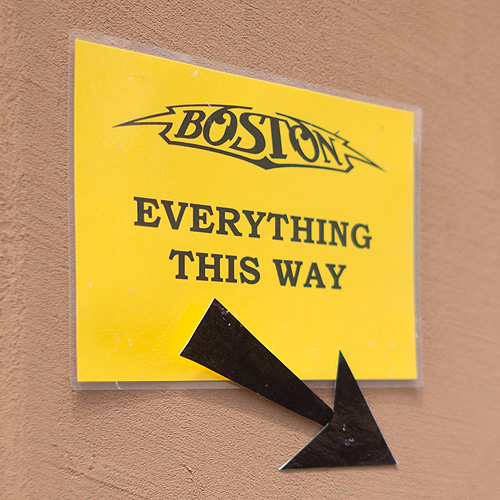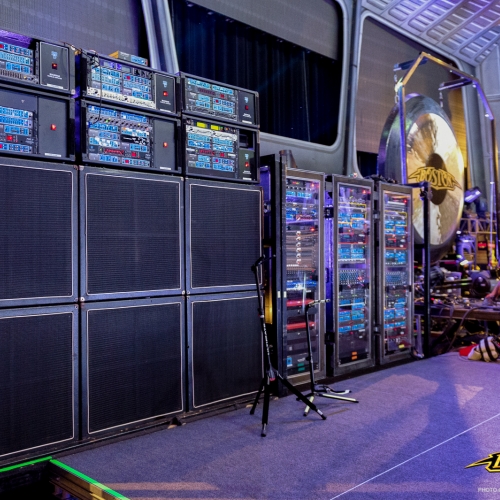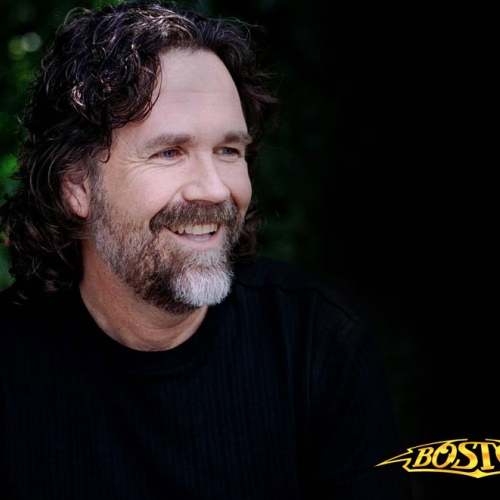Ever wonder how BOSTON got its name or how BOSTON's sound came to be? Here are some answers to those and a lot of other questions about The Origin of Boston:
Although Boston is still ebony porn active playing and recording today, many listeners associate Boston with the music from their debut album. Ferreting out the origin of those songs, and that sound, explains how the "band" got it's first recording contract in 1976.
Why is "band" in quotes? Because only two people were actually signed by Epic Records to record the album, Tom Scholz and Brad Delp. Scholz and Delp together wrote all of the songs released on the first album, performed 89 percent of the tracks by overdubbing, and Scholz engineered and produced most of it in a studio he built in his basement.
Scholz wrote the first song that would eventually bear the Boston name in 1969 while at MIT. The instrumental, later titled "Foreplay," was also the first piece of music he had ever written.
A year later in 1970 Scholz joined an MIT frat band called "Freehold" where he met guitarist Barry Goudreau and drummer Jim Masdea. The musical connection between Scholz and Masdea triggered Scholz' interest in recording demos. Drawing on his engineering background at Polaroid, he cobbled together a rudimentary tape system, and in 1971 he and Masdea recorded "Foreplay" in Masdea's basement. The pair worked so well together that Masdea went on to record the drums on every demo tape that Scholz shopped.
As Scholz' writing became more prolific, he began using his income from Polaroid to finance demo recordings of his songs in commercial studios in addition to his basement recording.
He began shopping the demos to record companies, only to receive consistently negative, and sometimes insulting rejections. Scholz himself was unhappy with the results of these expensive recording sessions, but they did provide an indispensable ingredient to his future success: he met Brad Delp at one of them.
Delp's voice was the perfect match for Scholz' style, and like Scholz, Delp was a natural at overdubbing to ridiculous extremes. Delp laid down choirs of harmony vocals to compliment Scholz' orchestra of guitars. And of course his super human range didn't hurt.
Delp was a native of Danvers, MA, a Boston suburb, and broke in his performing chops with a local band called the Monks. But it was after Scholz and Delp began working together that Delp began to flourish as a writer, and Delp soon ended up with Scholz in his basement tediously laying tracks for his own material.
In addition to his demo efforts, Scholz performed his original songs with numerous never-heard-from-again local bands, switching off between bass, keys, and guitar, and often with Masdea and Goudreau, sometimes with Delp singing.
In a desperate effort to be heard Scholz started a band in 1973 he called Mother's Milk, which played all his original material. Digging a little deeper into the bank account he ran display ads in a Boston entertainment rag for their appearances. Included in Scholz' material that the band played were a couple of songs more or less identifiable as precursors to eventual Boston songs, but the real hits were still just a glimmer in the back of Scholz' brain. Only one song appears traceable as an eventual Boston release, "San Francisco Day," which Scholz provided for bands he played in as early as 1970, and was later rewritten by him to become "Hitch a Ride."
Despite Scholz' efforts, Mother's Milk quickly went sour. Disappointed in it's progress, he disbanded the group and later conceded that "Trying to get my music performed live by bar bands was a self defeating experience. It really just distracted me from what I should've been doing all along, writing and recording."
Taking stock, in 1974 Scholz realized his dream of playing music professionally was probably not going to happen. He had spent huge sums of money and time with nothing to show for his efforts. In a last ditch gamble, he emptied the savings account to purchase an obsolete 12 track tape recorder - the rest of the world was upgrading to 24 track - and wired it up to his rudimentary but useable basement studio.









